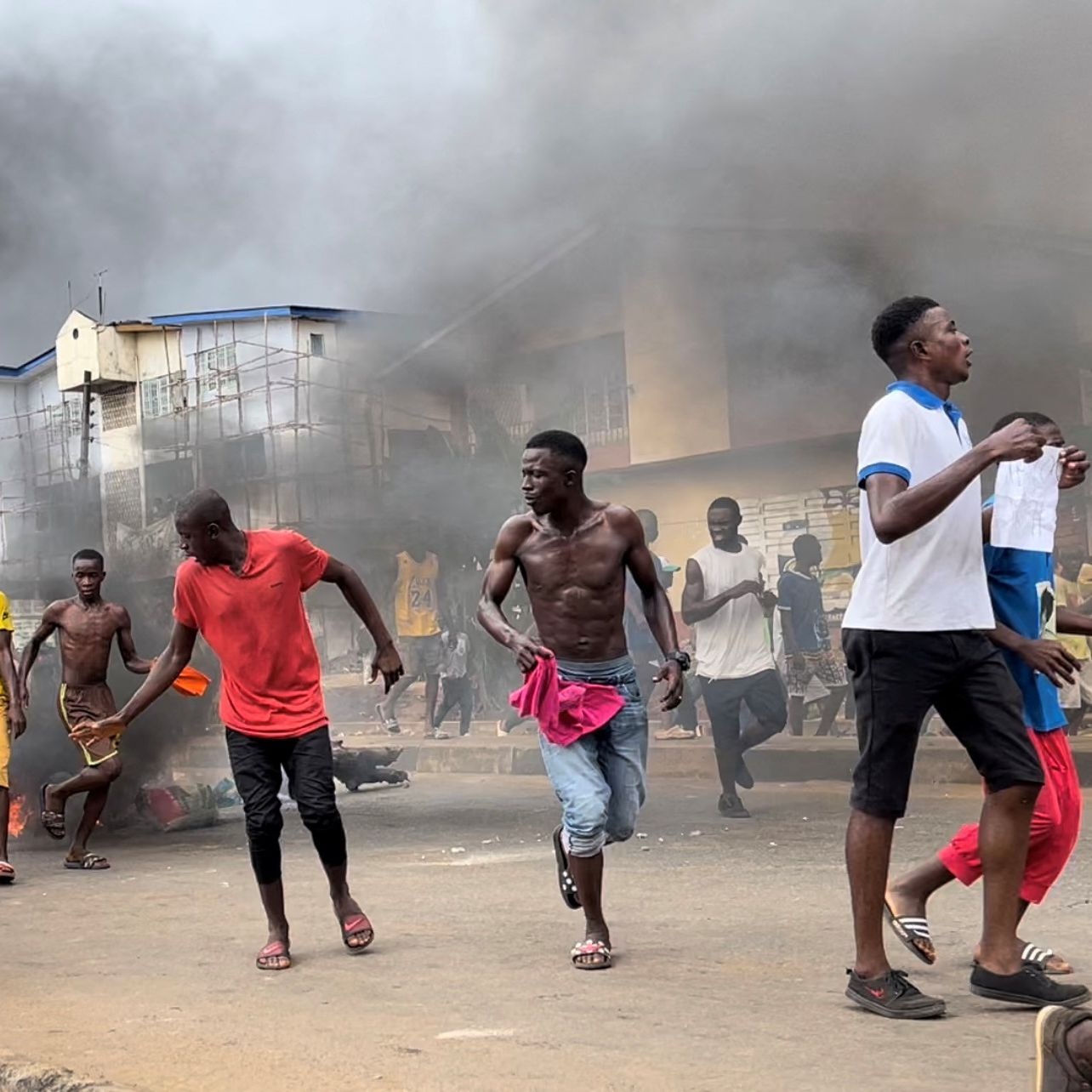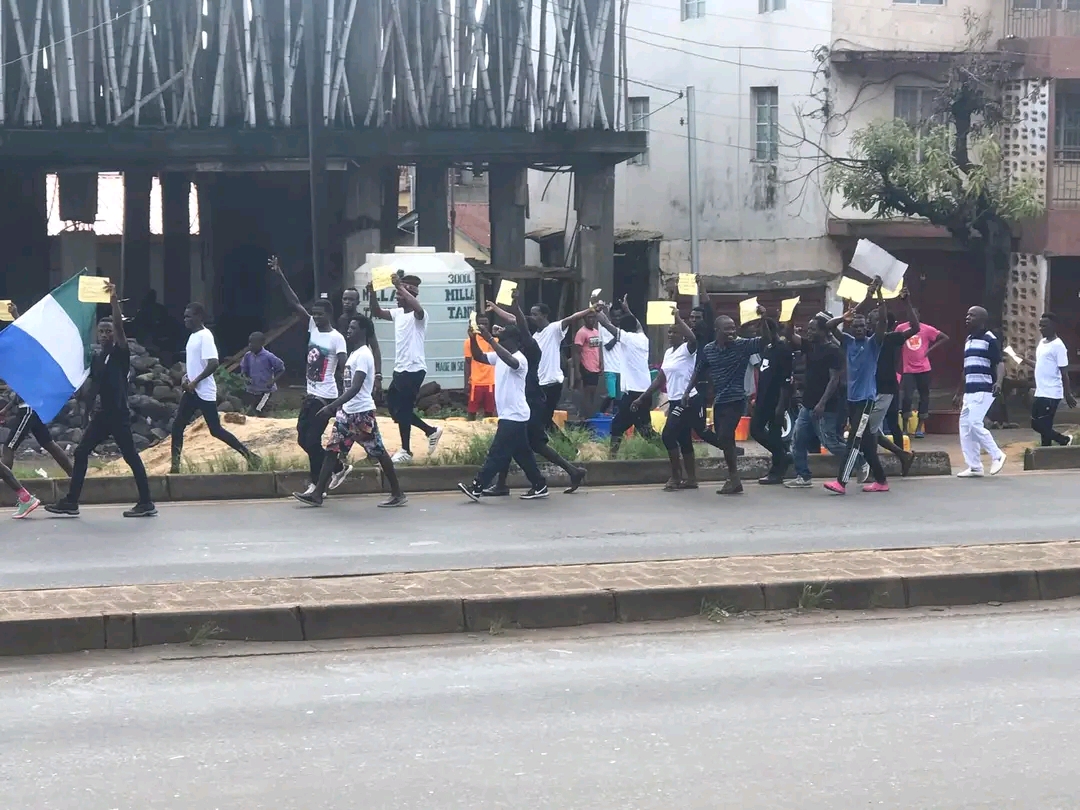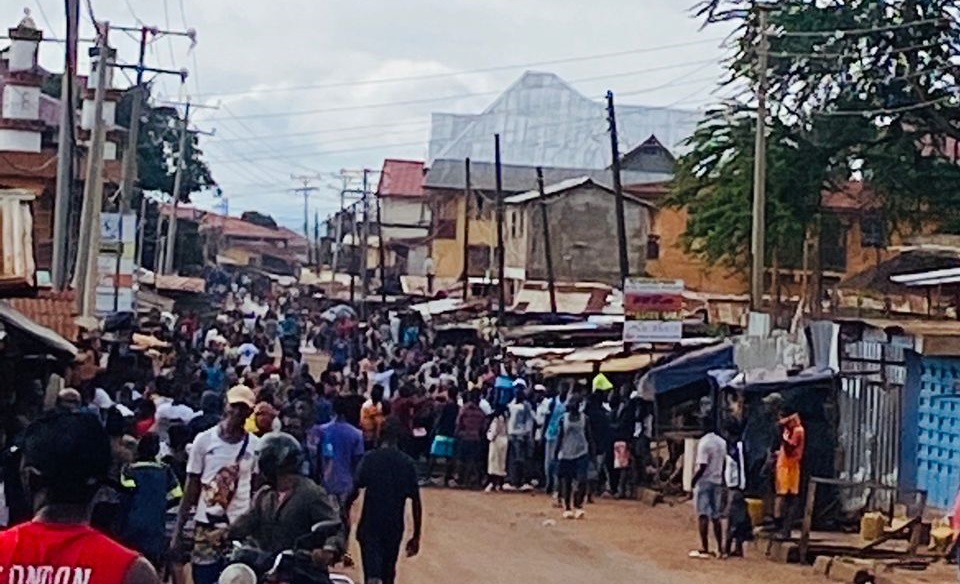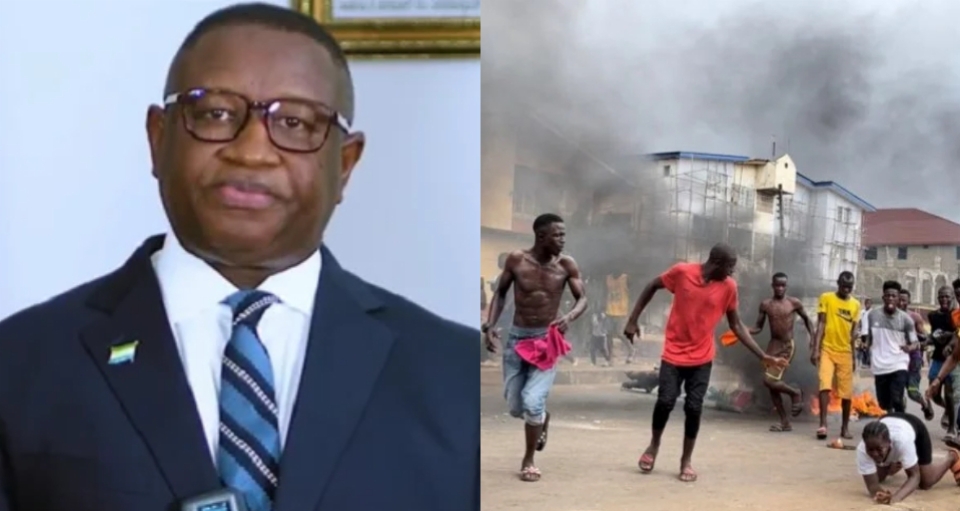The August 8, 9 and 10th protests in Sierra Leone may have come and gone. But the consequences continues to bite harder on citizens, businesses and government. Investigations by Sierraloaded can reveal that over 30 billion Leones was lost to the protest.
On Monday 8th August and Tuesday 9th August 2022, the Capital City of Freetown and other major towns in Sierra Leone witnessed a sit-down strike that led to closure of major shops and ghostly business places. The city and its suburbs were practically ghost towns as businesses were paralyzed, street hawkers and sellers, commercial motorbike and tricycle riders, commercial drivers and workers stayed home in compliance with the strike.
The protest which had been planned for weeks climaxed on Wednesday 10th August, 2022 with a violent street demonstration which left at least 6 police officers and over 20 civilians dead.

According to the organizers, the protest is unconnected to hard ship, uncontrollable price hikes of food and basic commodities, rampant corruption, tribalism, nepotism, human rights abuses, gender based violence and lack of respect for the rule of law and the Constitution. However, demonstrators demanded the departure of President Julius Maada Bio, who was elected in 2018 and still has 10 months left in his term. They chanted “Bio must go” as they made their way through the capital, Freetown.
Videos on social media showed large crowds of protesters and piles of burning tyres in eastern Freetown. Other footage showed a group of young men throwing rocks on a street filled with whitish smoke and another group attacking a man on the ground.
The grounding of activities in the country’s capital, Freetown, the blockage of major routes leading to various places the partial/complete closure of some markets and big malls as well as the closure of schools and other places that offer essential services took a toll on the economy of Sierra Leone.
Sierraloaded findings revealed that small business owners in Freetown who survive on daily earnings were largely affected. Many shops were closed and streets deserted. Even though assurances were given by the Office of National Security (ONS), the police and public officials, many businesses could not venture to open their shops for fear of being looted by hooligans who normally use the slightly of opportunity to steal.

Alimamy Turay, a businessman in central Freetown said that he did not open his shop because he did not want to take risk because he can’t preempt what will happen in the course of doing his business.
Based on the 2021 financial report, from the macro-fiscal policy division of the Ministry of Finance, During peak years, the government generates from Goods and Service tax (GST) close to ten billion Leones (10,000,000,000) per day, the equivalent to seven hundred thousand dollars ($ 700,000 US) and on average at worst it makes one hundred twenty-seven billion Leones (Le 127, 000,000,000) per month ($ 1,000,000 US.
All things being equal the government lost ten billion Leones ($ 700, 000, 00 US) per day just from the GST collection alone, commutating to over 30 billion Leones for the 3 days the strike action lasted. This said amount mentioned above is part of eighty per cent of the government revenue to GDP per year. Meanwhile, many businesses were also shut due to the curfew imposed by the government.

In a national broadcast, President Julius Maada Bio had described the protest as an attempt to overthrow his government.
“This was not a protest against the high cost of living occasioned by the ongoing global economic crisis. The chant of the insurrectionists was for a violent overthrow of the democratically-elected Government. The killings and destruction targeted Police officers and public and private property associated with the Government. Theirs was not a protest about measures undertaken by the Government to handle the challenges brought on by the global economic crisis.”, He said.
He also mentioned that since COVID-19 struck, Government has undertaken specific economic mitigation, recovery, and resilience measures that have kept essential food items and fuel on the market, kept businesses running, and maintained public services and regularly paid salaries.
Bio added Government has reduced fuel and transportation prices twice in the last month alone. This is in addition to other social safety payments and cash transfers to poor and vulnerable populations and microfinance loans to women and youth.











